June 9, 2025 | 14:00 GMT +7
June 9, 2025 | 14:00 GMT +7
Hotline: 0913.378.918
June 9, 2025 | 14:00 GMT +7
Hotline: 0913.378.918
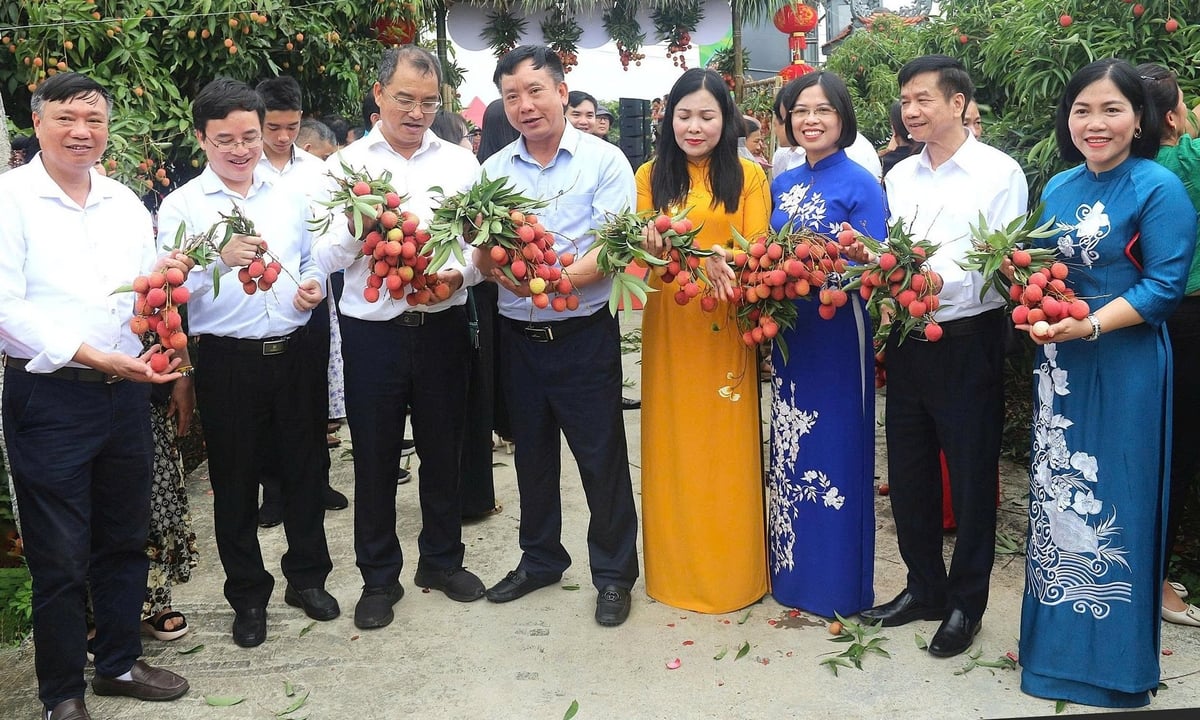
Leaders of Hai Duong Province and its departments, along with business representatives, visit the Thanh Ha lychee orchard. Photo: Pham Hieu.
At the opening ceremony of the Thanh Ha lychee orchard for the 2025 season, Mr. Nguyen Khac Tien, Chairman of the Board of Directors of Ameii Vietnam Joint Stock Company, enthusiastically shared with local farmers the story of how the Japanese first tasted a lychee. They fell silent with emotion, not just because of the flavor, but because they could feel the story behind this specialty: the land, the people, the climate, the farming practices, all coming together in a single lychee.
For Ameii, the lychee is no longer just a commodity. It is the essence of nature and culture, the identity of the coastal region of Hai Duong. “If you want people to eat your fruit, you first have to move them emotionally,” Mr. Tien said. But to tell that story to the world, businesses alone cannot bear the burden. Today, one brand may say “light of the coastal region”; tomorrow, another may speak of “sweet fruit in alluvial land.” Without a unified message, it is impossible to create a consistent image for Vietnamese agricultural products.
From these concerns, the issue of improving the investment and business environment must be viewed more broadly. It cannot be confined merely to streamlining procedures or reducing waiting times. To build long-term competitiveness, a supporting ecosystem is needed, where the government is not just a regulator but also a facilitator; this includes standardizing information, sharing data, guiding market orientation, and promoting technology transfer.
These principles are not theoretical. For businesses that directly export agricultural products, this is daily reality, where a good policy can open up opportunities, and timely support can turn around an entire season. Mr. Mai Xuan Thin, General Director of Red Dragon Service Trading Production Company Limited, who has quietly pursued the lychee export story for many years, probably understands this better than anyone.
“To export, you first have to meet standards. There is no shortcut,” he shared. Lychee is a seasonal fruit with a short harvest period, and the golden export window lasts only a few weeks. But with early preparation, from raw material areas, electronic traceability, to deep cold storage, the lychee can transcend seasonality and be available year-round.
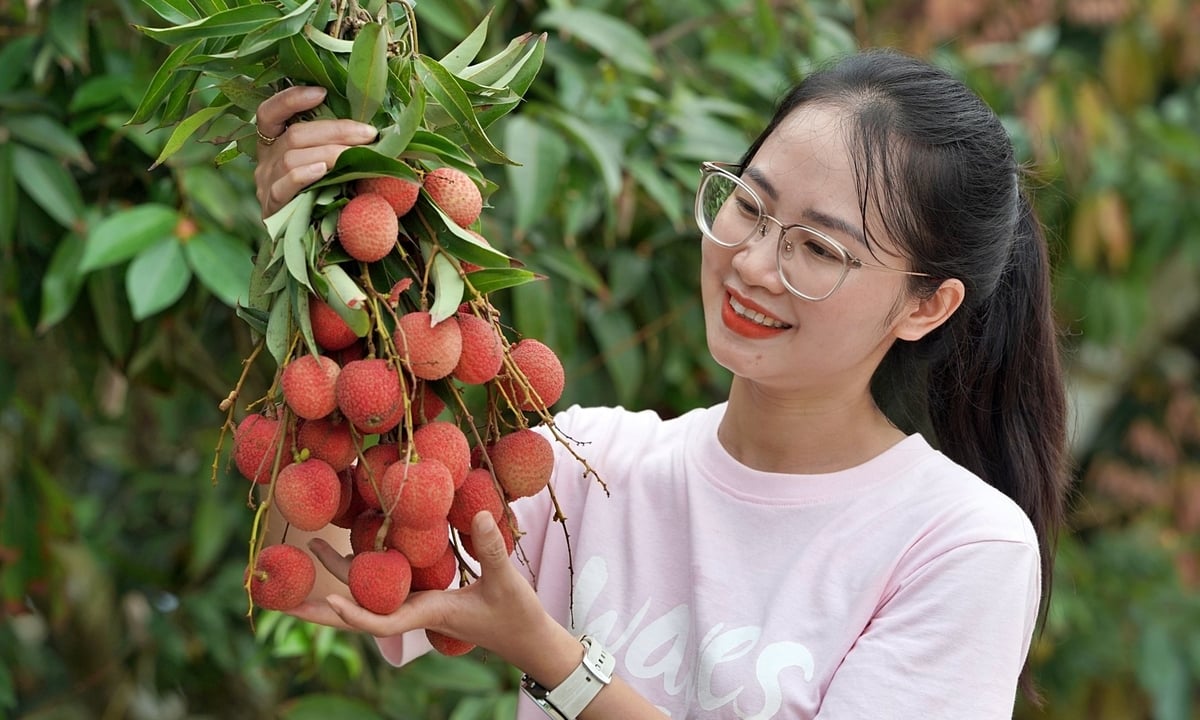
Visitors enjoy their experience at the Thanh Ha lychee orchard. Photo: Bao Thang.
To achieve this, businesses cannot rely solely on their own efforts. They need the involvement of authorities from commune to provincial levels, from domestic promotion agencies to Vietnamese trade offices abroad. These are the ones who quietly keep the rhythm, listen to the market, connect information, remove technical barriers, and pave the way for agricultural products to go further.
Enhancing the value of lychee, like many other key agricultural products, is a story of sustained investment. It cannot stop at one harvest. “The government must lead, and businesses will follow,” Mr. Thin shared. That statement is not just a slogan; it has been proven true through many seasons. Without the proactive coordination from Thanh Ha district and Hai Duong province with trade offices and relevant overseas individuals and organizations, there would not have been consistent lychee shipments to the United States, Australia, or Japan.
But the farther one goes, the more connection is needed. Not every business has the resources to invest in preservation technology, access international technical standards, or craft a story that resonates emotionally with global consumers. “No matter how strong a business is, it’s very hard to go alone,” Mr. Tien admitted.
With this mindset, Ameii has invested significant effort into developing high-quality products, storytelling packaging, and traceability labels. But he still hopes the State will take a more proactive role, from helping to find suitable technologies, standardizing cultural criteria, to improving the capacity of cooperatives.
Meanwhile, Red Dragon is quietly expanding the domestic market for export-standard lychees, ensuring that the famed specialty of Hai Duong and other regions across the country is not dependent on just a few isolated markets. This is also a way for Vietnamese consumers to proudly enjoy globally certified lychees right at home.
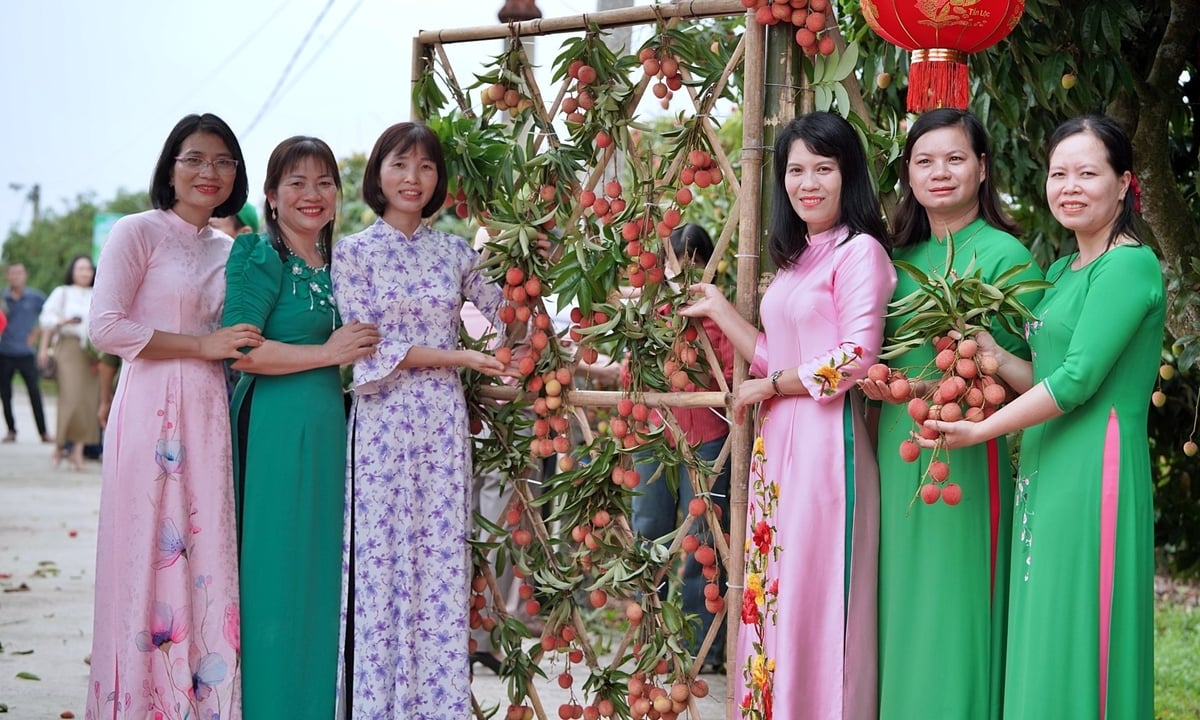
Beyond serving as a source of agricultural exports, the Thanh Ha lychee orchards have now become tourist destinations, helping local residents increase their income. Photo: Bao Thang.
Ultimately, these efforts are not just about market solutions; they are about patiently planting long-term trust. Businesses should not have to wait until facing difficulties to receive support. They need proactive companionship, from early on, from afar, starting with the smallest things, such as mesh lychee covers, moisture-absorbing plastic trays, to updated information on Japanese market requirements.
And that is also the essence of investor care. It is not about grand slogans, ceremonial signings, or investment festivals; it is about real presence, about listening, and about specific actions from the government at every step. When businesses plant a tree, someone will help nurture the roots. When they begin a story, someone will help tell it. And when they look to the world, there will be a hand to hold, not to restrain them, but to provide a sustainable foundation, from land to policy.
At today’s opening ceremony of the Thanh Ha lychee orchard, people witnessed local officials and business leaders sitting together at orchard lunches, discussing packaging, markets, and smiling at the thought of the shipments soon to depart. In those conversations, people realized that investment promotion is not a meeting. It is a relationship.
The investment and business environment, ultimately, is not just a set of policies. It is the nation’s competitiveness, the way a locality retains businesses and attracts the world's attention. Each exported lychee is not merely a market signal. It is a measure of an ecosystem that knows how to nurture and preserve.
AMEII once invested in lychee processing technology but faced challenges due to a lack of unified standards and insufficient technical support systems from management agencies. According to Mr. Nguyen Khac Tien, businesses greatly need the State’s companionship from research to practical application.
Translated by Huong Giang
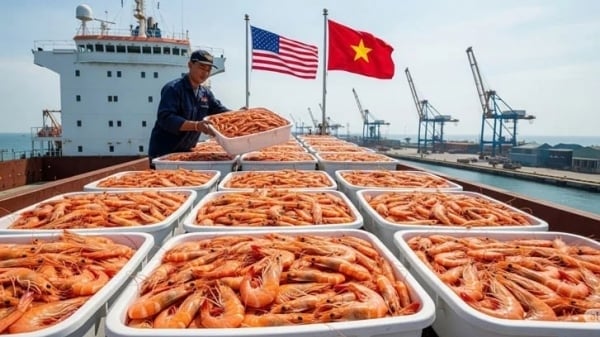
(VAN) Vietnam and the United States are proactively working together, each in their own way, to ensure that every container of agricultural goods carries not just products, but also long-term trust and value.
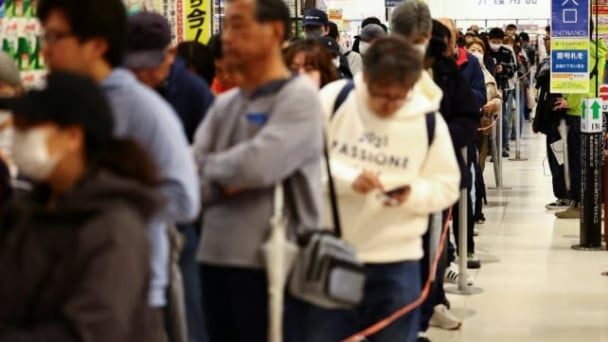
(VAN) Stores have started selling rice from the government’s stockpile to feed demand for the staple.
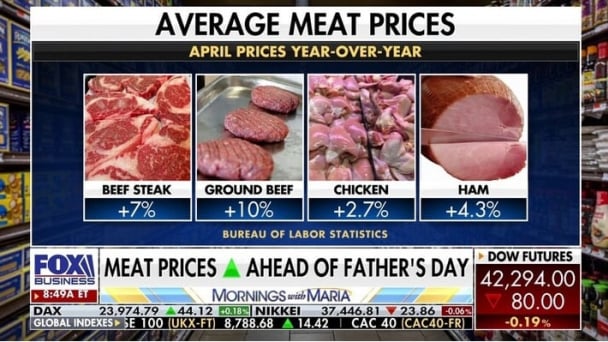
(VAN) Omaha Steaks CEO says rebuilding cattle herds will take about a year to ease price pressures.
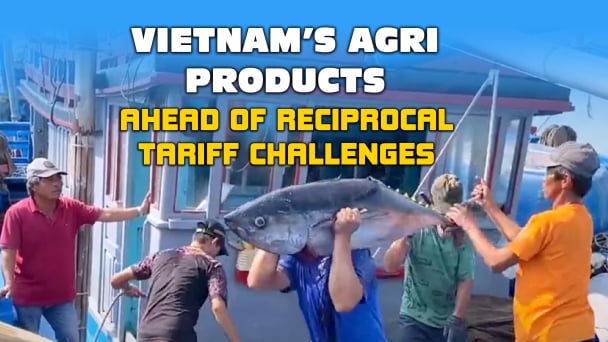
(VAN) Reciprocal tariffs and recent NOAA rulings are presenting substantial obstacles for Vietnamese tuna exporters in the U.S. market. As a result, the industry is actively seeking alternative export destinations.
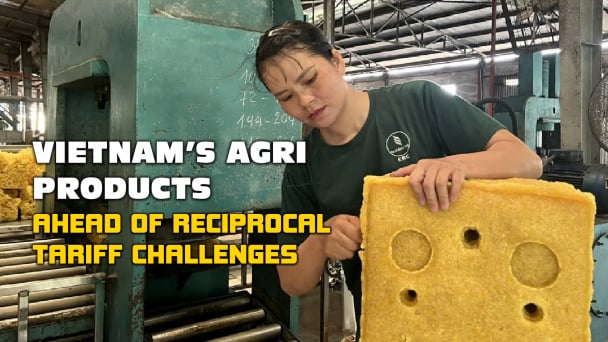
(VAN) Although the U.S. holds a small share of Vietnam’s rubber exports, newly imposed reciprocal tariffs are expected to impact the sector. Vietnamese enterprises must optimize the use of significant markets and free trade agreements.
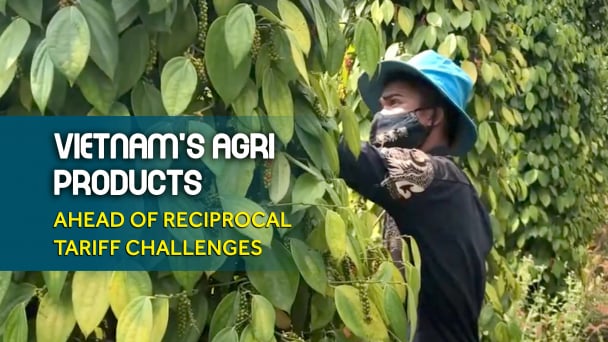
(VAN) Vietnam's pepper industry is looking forward to the final tariff decision in order to sustain its robust presence in the United States, the country's biggest pepper market.